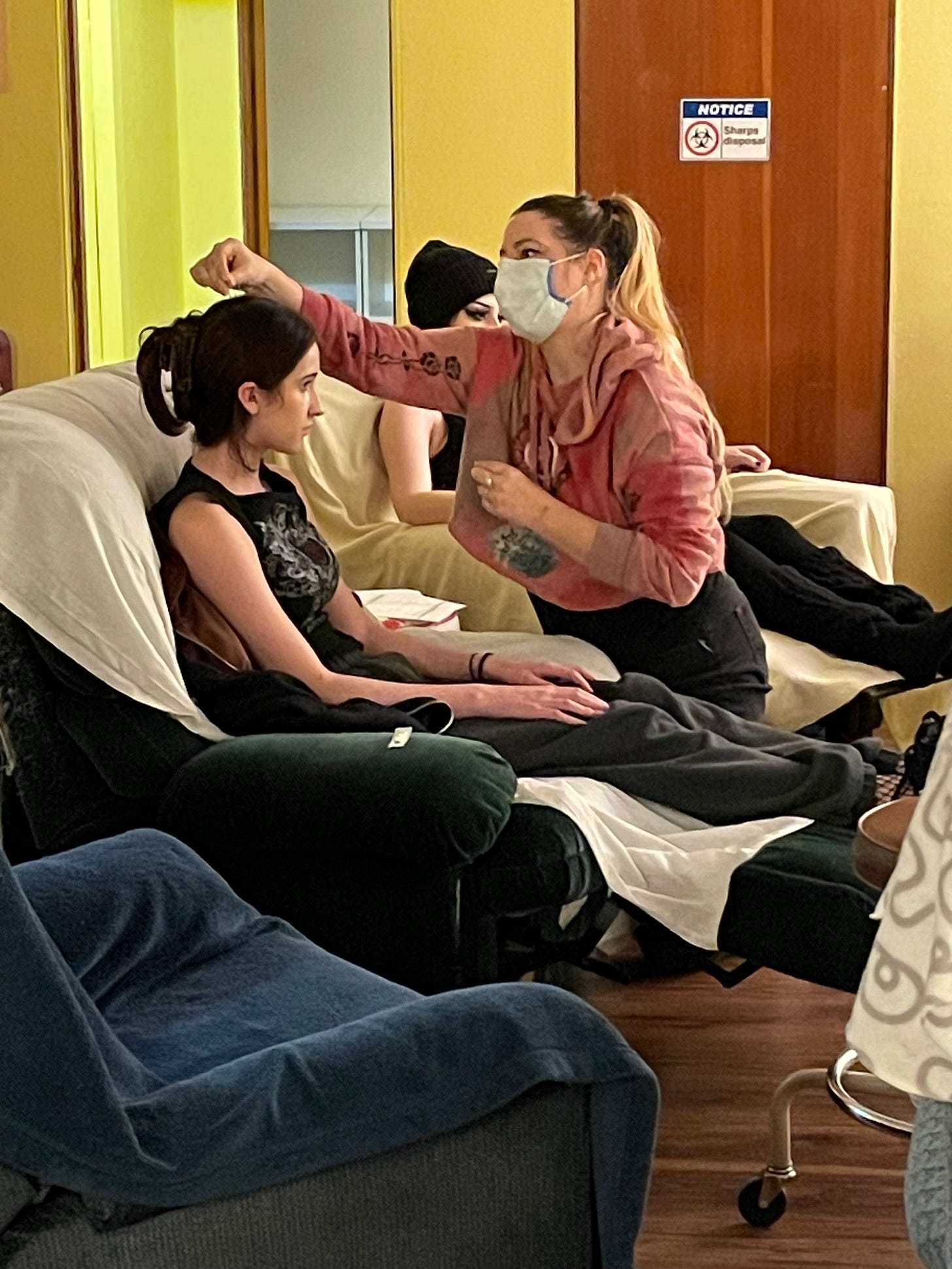Last Thursday we had our second pop-up clinic with Collective Roots APG in our classroom space with interns A., N. and N.:
APG stands for Alternative Peer Group: a group of friends that provides positive support for adolescents in recovery. This model has been used in Houston, TX for forty years and you can learn more about it here. We first met Robin Bergeron, who brought the concept from Houston to Portland, at a meeting of our building collective and we agreed that it would be great to find a way for POCA Tech and Collective Roots to work together. So we proposed a pop-up clinic.
In our first collaboration back in October, two POCA Tech interns introduced community acupuncture to about a dozen Collective Roots teens. It was a little wild, and quite educational. This time around, we changed some things: we scheduled three interns instead of two and Collective Roots planned for a smaller group. Our interns treated seven teens and one adult facilitator. Six of the teens had had acupuncture before, either with us or elsewhere; the facilitator hadn’t.
We believe an important aspect of community acupuncture is skill-building: the way patients gain competence and confidence in accessing acupuncture as a means of self-care. In our world, acupuncture isn’t so much a medical procedure that a white-coated professional does to a passive recipient (in billable increments); it’s more like a communal resource that patients learn how to use for their own purposes and on their own terms. Our role as acupuncturists is to facilitate access to that resource.
One of the great things about having two pop-up clinics with Collective Roots just a month apart was that we got to see that skill-building happen! The first pop-up was a big hit with the teens; at the same time, they were skeptical, nervous and noisy. During the second pop up, they were more confident and relaxed. It got so quiet that I felt bad about unwrapping a cough drop -- I had to go out to the hallway so that the crinkly paper sounds didn’t break the silence of a communal acu-nap.
And it stayed quiet for almost an hour. “I think I really needed that,” one of the teens commented afterwards, “it was really nice and peaceful.” Another teen said, “I’m starting to feel more aware — I’m noticing a cycle of compulsive thoughts, but I can see it from the outside, like I’m observing.”
Not only that, they were brave. “I did three Kidney 1s!” N. exclaimed during our debrief. (For non-acupuncturists, that’s a point on the sole of the foot.) “And I did Lung 11,” A. added (a point on the sensitive skin at the border of the thumbnail). “They were willing to try everything, I was amazed,” N. said.
As the teens were leaving, one of the girls stopped at the doorway and turned to the interns. “I really like you guys,” she announced. “You’re super kind and awesome and unique.”
As part of our coaching process with Camille Trummer, we talked a lot about building partnerships with organizations that share our values. I think one of the not-so-obvious but powerful aspects of a good partnership is the way that organizations reflect back each other’s positive qualities. Our partners help us remember who we are. Collective Roots APG is also super kind, awesome and unique, and so is our collaboration. We’re grateful to the teens, the facilitators and Robin for giving us an opportunity to practice our skills together.
Keep reading with a 7-day free trial
Subscribe to Acupuncture Can Change the World to keep reading this post and get 7 days of free access to the full post archives.







